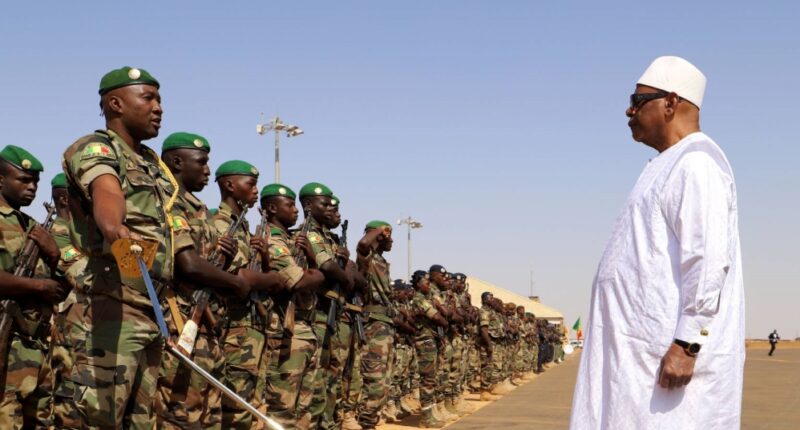Mali’s President Ibrahim Boubacar Keita resigned late on Tuesday, hours after mutinying soldiers seized him from his home following months of mass protests against alleged corruption and worsening security in the West African country.
The news of Keita’s departure was met with jubilation by anti-government demonstrators, while leaders of the military coup said they would enact a political transition and stage elections within a “reasonable time”.
Keita announced his decision to step down in a brief address on national broadcaster ORTM at around midnight. Looking tired and wearing a surgical mask, the 75-year-old said his resignation – three years before his final term was due to end – was effective immediately.
He also declared the dissolution of his government and the National Assembly. Hours later, the soldiers behind the coup – calling themselves the National Committee for the Salvation of the People – appeared on state television in military fatigues, pledging to stabilise the country.
There was no immediate comment from Mali’s opposition leaders, but earlier on Tuesday, the M5-RFP coalition behind the mass protests signalled support for the mutineers’ action, with spokesman Nouhoum Togo telling the Reuters news agency it was “not a military coup but a popular insurrection”.
The United Nations, France and others had also condemned Keita’s detention, but in the capital, anti-government protesters who first took to the streets back in June to demand the president’s resignation, cheered the soldiers’ actions.
The political upheaval unfolded months after disputed legislative elections, and came as support for Keita tumbled amid criticism of his government’s handling of a spiralling security situation in the northern and central regions that has entangled regional and international governments, as well as a United Nations mission.
The downfall of Keita, who was first elected in 2013 and returned to office five years later, closely mirrors that of his predecessor. Amadou Toumani Toure was forced out of the presidency in a coup in 2012 after a series of punishing military defeats. That time, the attacks were carried out by ethnic Tuareg separatist rebels.
The 2012 coup, which also erupted at the same Kati military camp, hastened the fall of Mali’s north to armed groups, some of them linked to al-Qaeda. Ultimately, a French-led military operation overthrew the fighters, but they merely regrouped and expanded their reach into central Mali during Keita’s presidency. And at times, Mali’s military has seemed powerless to stop the fighters, some of them now also affiliated with ISIL (ISIS).
The violence, in which the armed groups have stoked ethnic tensions while jockeying for power, has spilled into the neighbouring countries of Niger and Burkina Faso, destabilising the wider Sahel region and creating a massive humanitarian crisis.
Also in March, unidentified gunmen abducted Mali’s main opposition leader, Soumaila Cisse, as he campaigned in the country’s volatile centre. He has not been heard from since.
As the tensions mounted, anxiety has also grown in Mali in recent weeks about another military-led change of power in Mali, particularly after regional mediators from ECOWAS failed to bridge the impasse between Keita’s government and opposition leaders.
ECOWAS denounced “the overthrow by putschist soldiers of the democratically elected government” and ordered the closing of regional borders with Mali as well as the suspension of all financial flows between Mali and its 15 members states.
The UN Security Council scheduled a closed meeting on Wednesday afternoon to discuss the unfolding situation in Mali, where the UN has a 15,600-strong peacekeeping mission.





